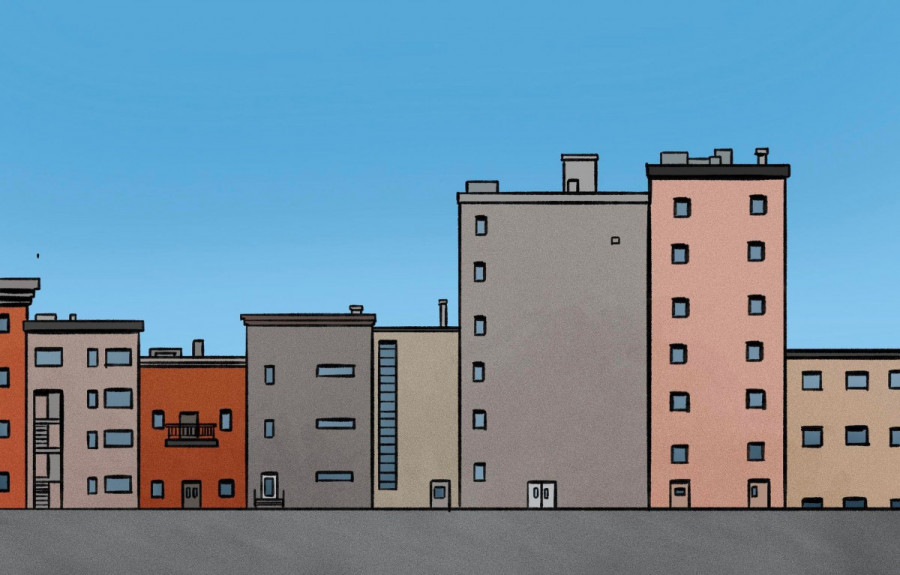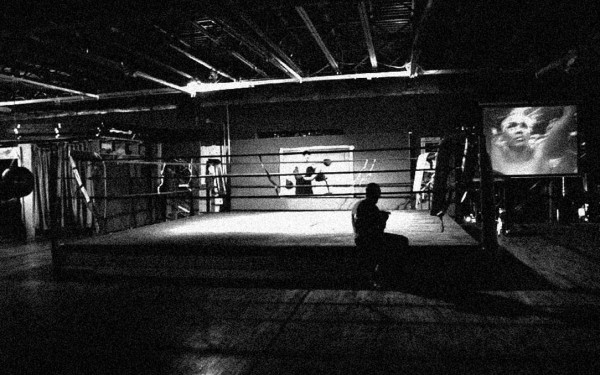The challenges faced by students in Montreal’s housing market
Renovictions, rental increases, low vacancy rates all remain obstacles
Renovictions, rental increases, low vacancy rates—the Montreal rental market is growing increasingly inaccessible. For the 180,000 students currently studying in the city, of whom many have to find a new place to live each academic year, high prices and low availability make finding an affordable place to live a difficult and stressful task.
“I started my hunt by looking at university-owned student housing,” said William Lambert, an international student majoring in economics at UQAM. “But, by the time I got to UQAM’s website, everything was full.” As the start of the semester grew closer, Lambert felt increasingly pressured to sign for anything he could find. “Out of panic, I ended up choosing private student accommodation that cost $1,400, not including an added $700 for the obligatory food plan,” he said.
When Lambert arrived in Montreal, it became apparent that he was paying far above the average rental cost. “I knew I had to find somewhere else,” he said, “but there wasn’t an abundance of places to rent within my budget.” It wasn’t until Christmas that Lambert managed to find somewhere affordable to move into.
Lambert’s experience speaks to a growing trend of rising rental prices in Montreal. According to a recent consensus by Canada Mortgage and Housing Corporation, the monthly cost of a three-bedroom apartment in Montreal increased by an average of $181 between 2018 and 2021. That’s a rise of $2,172 per annum.
To make matters worse, rental vacancy rates are on the decline, meaning a decreasing percentage of Montreal properties are available for new tenants to rent. The CMHC consensus found that vacancy rates reached 1.6 per cent in 2019, the lowest figure since the early 2000s. With fewer properties on the market, tenants are often left with no choice but to compromise on both cost and quality.
According to Alex Clifford, a representative from Concordia’s Housing and Jobs Office, the COVID-19 pandemic has made it even harder for students to find somewhere to live within their budget. Since most students lived with their families last academic year, Clifford explained, relatively few of them lived in rented accomodation. This meant that housing previously reserved for students was instead claimed by families and workers, he said. Clifford has noticed a definite increase in the number of students accessing HOJO for support over the past year and a half.
“Students are unfortunately often taken advantage of by landlords,” Clifford continued. With few properties on the market and high rates of student demand, he said, landlords have greater power to raise prices and neglect their responsibilities. “Since many tenants are unsure of their rights, they are ill-equipped to defend themselves against large-scale landlords,” he concluded.
After weeks of fruitless searching, international Concordia student Jade Ghanty and her boyfriend were forced to sign with a landlord they deeply mistrusted. “The reviews [of the landlord] were absolutely awful,” Ghanty said, “but we had no choice and decided to see for ourselves.” Though in the end Ghanty’s landlord turned out to be satisfactory, not all Concordians have been so lucky.
When political science student Marc Emanuel arrived in Montreal, his hopes of moving straight into rented accomodation were dashed by his rude and uncompromising landlord. “I’d put a deposit down on a property and was supposed to move in on Sept. 1,” said Emanuel. “By Aug. 27, I still hadn’t received confirmation. When I called the landlord, he said the renovations weren’t ready but refused to give a specific date.” For sixteen days, Emanuel was forced to live in a hostel, paying $35 a night. “I tried to find other accommodation but there was nothing in my budget,” he said. “The situation completely ruined my first weeks here.”
Once Emanuel was finally allowed to move in, he was disappointed with the condition of the property. The place was dirty, under furnished, and missing essential amenities like a smoke detector and carbon monoxide alarm, he said. “When I tried to contact the landlord to complain,” he continued, “I was told to contact the man in charge of repairs, who ignored my message completely.”
For Khushi Chavda, an international Concordia student studying Theatre, apartment searching was made harder by the racial prejudice she encountered in the Montreal housing market. “As a Woman of Colour, I did experience a lot of racism [when looking for housing],” said Chavda. Even after she’d found somewhere to live, Chadva still had to contend with a landlord who treats her differently to her white Canadian roommates. “The tone of his voice is drastically different when he communicates with them rather than me,” she said. If anything goes wrong in the building, or something breaks, it is her who receives the blame, as she is the one the landlord speaks to every time, Chadva said.
Data from Utile, a Quebec non-profit, found that 58 per cent of students in Quebec had experienced one or more of the following situations: being mistreated by their landlord, living in substandard or structurally unsafe accommodation, feeling unsafe in their neighbourhood, or living with people around whom they do not feel safe. The study also found that only 60 to 70 per cent of Canadians become tenants in the city where they study, versus 100 per cent of international students. This means the lack of available properties impacts international students disproportionately, forcing them to accept poor living conditions and rude or even racist landlords.
For students struggling with difficult landlords, HOJO offers a free advisory service that can be booked via email. “The main thing we do to help students is informing them of their rights and responsibilities and empowering them to assert their rights,” said Clifford. “We also keep a database of complaints made by landlords [...] before signing a property, you can check if the landlord comes up on our database.”
HOJO is not the only Concordia organisation bent on tackling the student housing crisis. The Woodnote Solidarity Cooperative, a non-profit housing co-op, has been working since 2019 to facilitate inclusive, affordable, and democratically-run housing for Concordia students. Every member of the co-op has the right to vote and the power to make decisions about their living environment. The co-op welcomed its first 144 tenants in 2020 and has hopes of expanding its reach in the years to come.
Read Also: The Woodnote student housing co-op is opening its doors to new tenants.
Though transformative for those able to access them, student-run organisations such as these do little to reform the housing market permanently. In the most recent CSU referendum, 88 per cent of voters were in favour of building a new student co-op, proving the growing demand for more organisations that help students find accommodation.
One way to create housing for large numbers of students is to build more university owned student accommodation, or PBSAs. It is clear from the above testimonies that Montreal’s current rental market is unsuited to student’s needs. And yet, the amount of beds in Concordia’s PBSAs remains at an all time-low. According to Concordia’s and Mcgill’s respective websites, only 3 per cent of Concordians are offered PBSA versus 10.6 per cent of McGill students. To put this into perspective, a 2021 study by Bonard, the market intelligence company, found that Montreal as a whole offers only a third as many student beds as a comparably populated student city in Europe.
When asked about what more the university could do, Clifford said “personally, I would love to see Concordia eventually subsidise housing for students.”
With July 1, Montreal’s official moving day, rapidly approaching, the many challenges students face in finding accomodation remain as prevalent as ever.




__600_375_90_s_c1.jpg)
1_600_375_90_s_c1.jpg)
